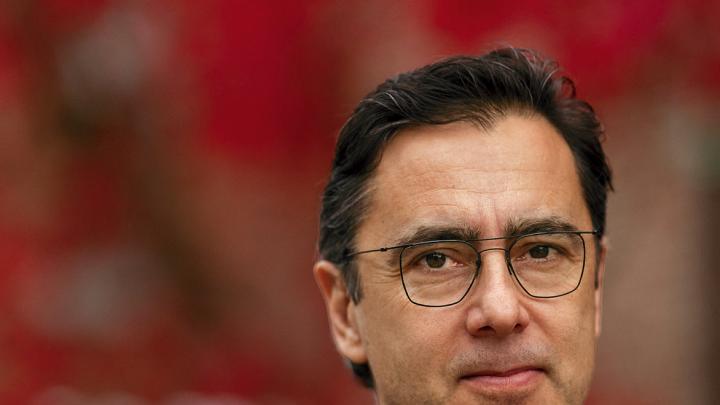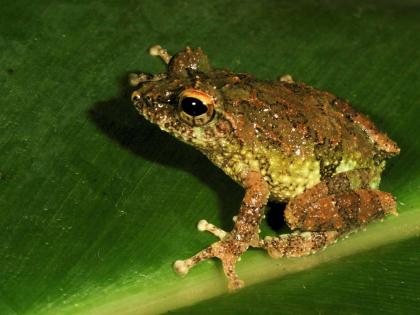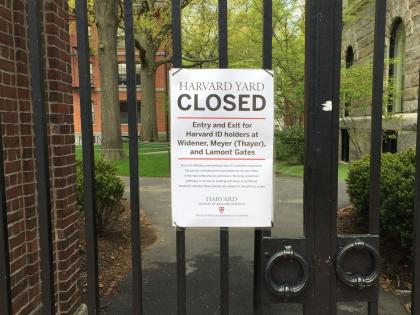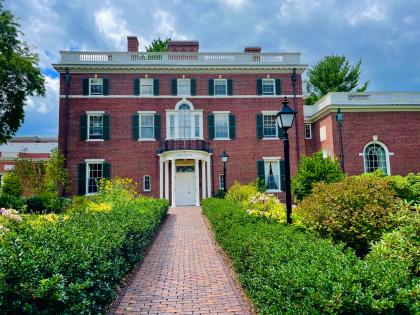George Sarrinikolaou was born in Athens on the cusp of Greece’s urbanization—a fulcrum in the country’s history. “Two generations ago, the people in my family were subsistence farmers who produced very little waste,” says the executive director of the Salata Institute for Climate and Sustainability. “Then my parents’ generation was forced to immigrate to cities.” He grew up seeing “both worlds”: visiting his grandparents in the countryside and then returning to Athens, where the environmental harms of urban living were made stark. At the time, those issues were “just something in the background, something that affected my thinking about what the world was and how it worked.” Today, as assistant provost for climate and sustainability, Sarrinikolaou considers them more deliberately. He thinks of the institute, too, as a fulcrum: a place where researchers from different disciplines can come together to leverage climate change solutions. Sarrinikolaou was drawn to sustainability work because he wanted to use his education “to make an impact in the real world”—a desire he’s had since he was a child learning English in New York City, where his family immigrated when he was 10. Thereafter, he studied English at Cornell and spent a stint as a journalist—a background that shapes his understanding of climate research’s interdisciplinary nature. In 2002, he returned to Athens to write a book about the city. “It’s not a scientific book; it’s not about Athens’s air quality,” he says. “But it’s actually an environmental book in many ways”—his considerations of oppression and injustice in Athens are entwined with environmental concerns. He hopes the Salata Institute can accelerate similar thinking: to enable researchers of social sciences, hard sciences, and humanities to study how their disciplines intersect—and tip the balance toward climate solutions.
George Sarrinikolaou
Provost for climate and sustainability’s journey from Athens to Harvard

George Sarrinikolaou | Photograph by Sarah Bastille
You might also like
Harvard Professor James Hanken on the Amphibian Extinction Crisis
Curator of Herpetology on where all the frogs are going
Harvard’s Year That Was
Amid academic honors, the Faculty of Arts and Sciences focuses on the campus protest and task forces on antisemitism, anti-Muslim bias, civil discourse, and institutional voice.
Governance Reform from Below?
In a tumultuous year, Harvard professors discuss a University faculty senate.
Most popular
More to explore
Harvard Cardinal Robert W. McElroy on the Changing Catholic Church
Cardinal Robert W. McElroy on how the Catholic Church has moved towards inclusivity.
AI as Cancer Oracle?
How is artificial intelligence (AI) being used for cancer detection and prevention?
The Harvard Graduate and Early Vegetarian Benjamin Smith Lyman
Brief life of the vegetarian trailblazer, 1835-1920








